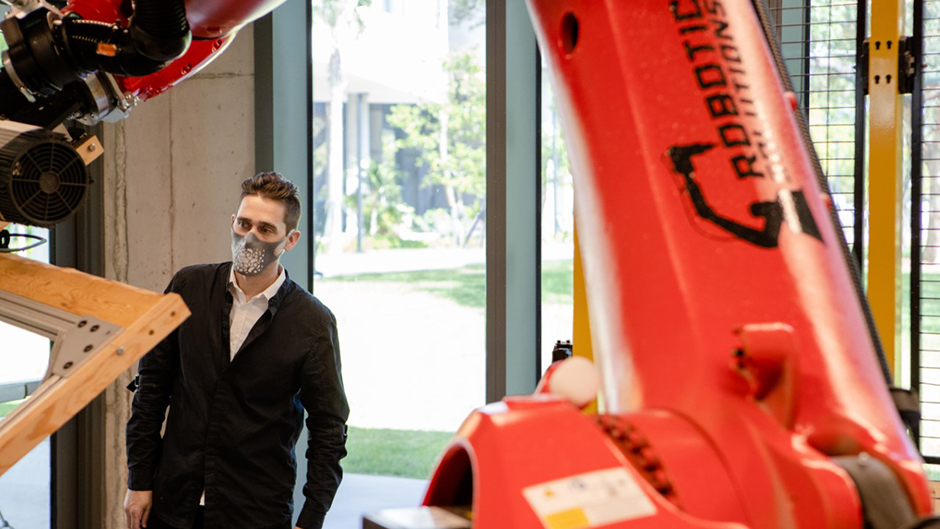“The nature of architecture is flux; there’s a lot of stable core knowledge necessary to become an architect, of course, but the way we design and the way we build are both contingent on technologies that are evolving exponentially,” he said. “Even the outstanding technology and lab capabilities we have today – those will be rapidly advancing and changing during the graduate student’s career.”
Lamere praised Prof. Allan Shulman, the previous director, for solidifying essential elements of the programs and having long discussions with him to form curriculum adjustments and changes built on a solid core.
“One cannot, at this point, even imagine an architecture of the future that doesn’t engage computational design processes, augmented reality environments, and so forth,” Lamere said. “The disruptions will be more profound still: robotic fabrication, automated construction, outsourcing enabled by instantaneous communication and virtual collaboration, and A.I. replacing human labor throughout the creative disciplines.”
Lamere received his Master of Architecture degree from the Harvard Graduate School of Design. Before joining the U-SoA, he was Assistant Professor of Architectural Design and Homer A. Burnell Chair at MIT.
“Our approach is very consistent with the roadmap vision of lifelong learning at the U-SoA,” he said. “With the ecological, economic, technological, and social disruptions that will characterize the coming century – we have to prepare students for this uncertainty, not mere competency. This requires fostering many kinds of literacy and an expanded view of the field – preparing our graduates to be lifelong learners.”
Lamere emphasized that technological progress is not, in itself, enough to tackle the world’s many problems. Lamere believes that technology can foster more collaboration, which in turn can help with diverse community building, but for architecture to truly address issues of equity and inclusion, it must reconsider who it serves beyond its clients. “A more just architecture will need to commit to a broader constituency, and codify what qualifies as a public good in such a way that those interests cannot be ignored.” He added that U-SoA Graduate Programs in Architecture “have the distinct mission to prepare architects to be good in two senses: to be good at being architects, which means navigating rapid changes in the profession, but also good as citizens, focused on how we can be agents for positive change in the world.”
Steve Wright (@stevewright64) is a Pulitzer-nominated, award-winning writer who blogs daily at: http://urbantravelandaccessibility.blogspot.com/

